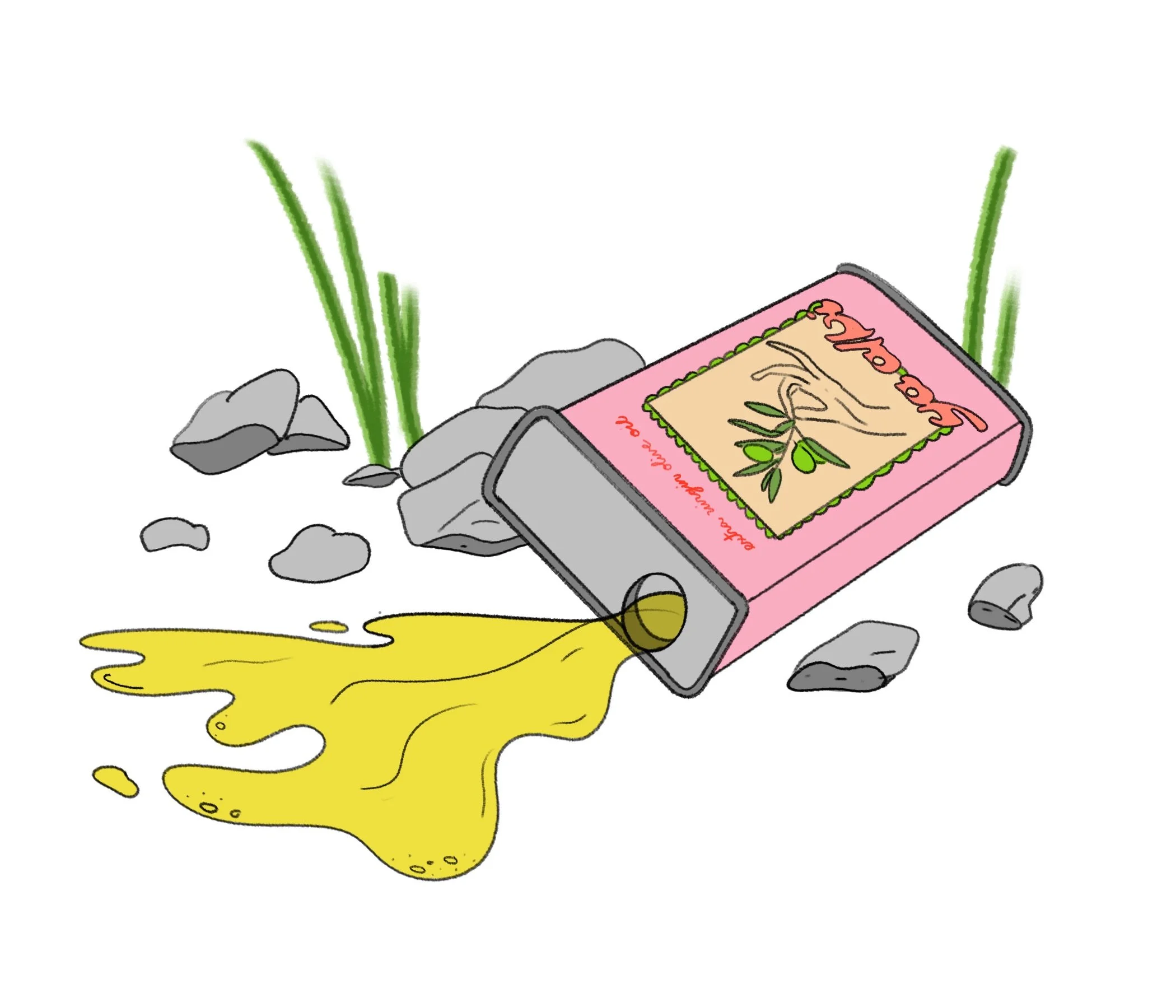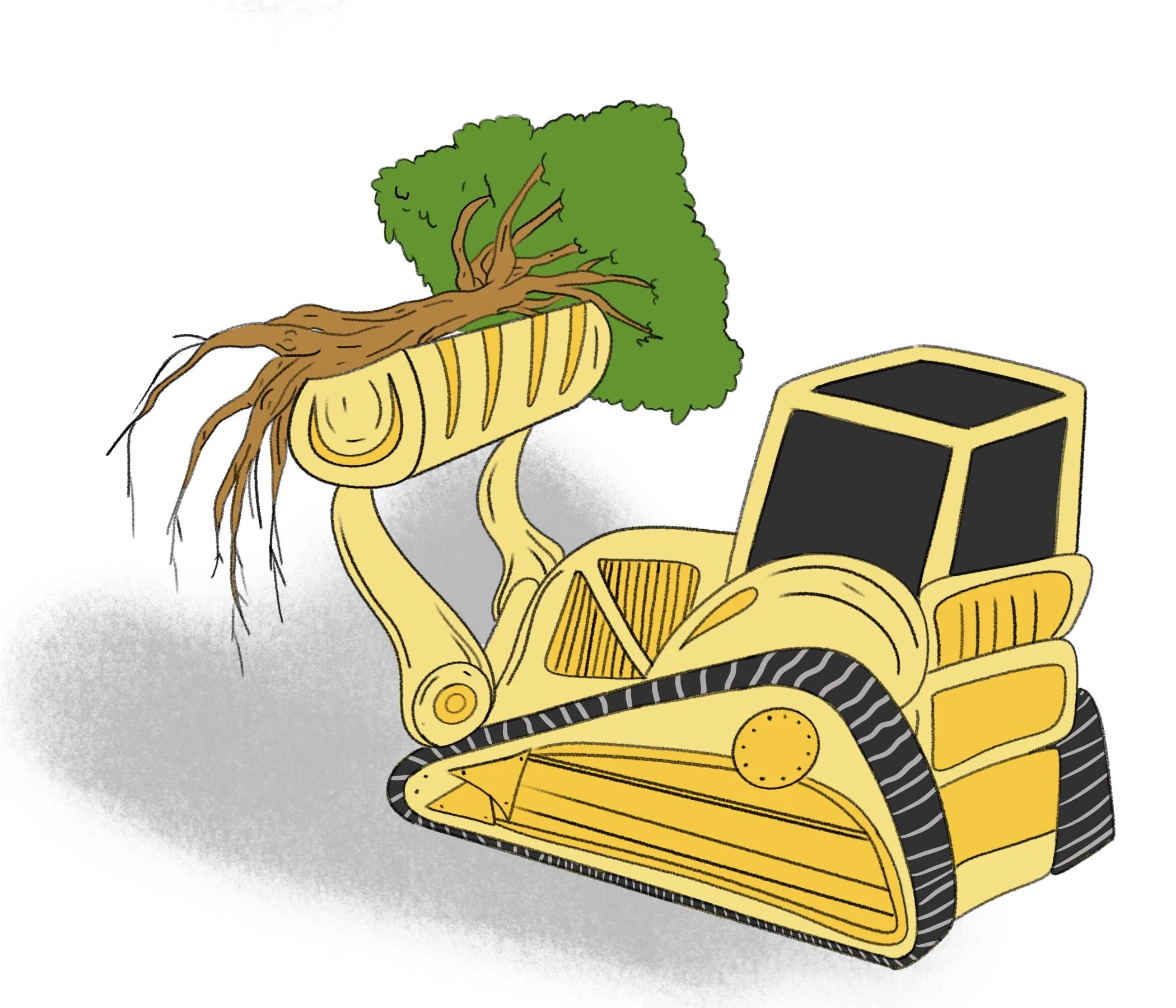Managing famine in Gaza
The following was originally published in the print and digital Deluxe Food Edition. Order a print or digital copy to support the only Palestinian magazine in the United States.
My name is Salama. I am a 23-year-old Palestinian from the northern Gaza Strip, and I studied multimedia. I grew up amidst the suffering and challenges imposed on us by war and siege. Our lives were filled with hopes and ambitions, but the current war changed everything, stealing our loved ones and dreams.
The war we continue to live through is not just a military conflict but an ongoing campaign of systematic destruction and extermination. Our cities have turned to rubble, and our families are torn apart between the martyrs, the wounded, and the displaced. We dreamed of peace and stability, but we found ourselves living in an unending nightmare.
The pain of losing loved ones in war is indescribable. I lost my mother during the most difficult moments of my life, and I couldn't even provide her with the necessary treatment due to the siege and the destruction of hospitals. I also lost many friends and relatives, each of whom was a part of my soul. The pain doesn't fade, but we try to endure.
As the war continues and the situation worsens in northern Gaza, it has become incredibly difficult to obtain food and basic necessities. Prices have skyrocketed, and things we once considered simple and accessible are now nearly impossible to get. With limited resources, people are surviving on whatever remains, but even those resources are no longer enough to meet their basic needs.
Before the war, all products and vegetables were readily available, and we could easily get them. But now, almost everything has disappeared, and only a few canned goods remain, barely enough to survive on. We are in dire need of vegetables, fruits, and meat, but famine here in northern Gaza has reached unprecedented levels. We live in unimaginable suffering, a tragedy that worsens by the day.
I will never forget the days we lived through earlier this year, especially in January, February, and March, when there was no food at all. My family and I, like many others in northern Gaza, were forced to eat the grass that animals feed on just to survive. We even had to grind animal feed to make bread to stave off hunger. Despite all of this, we are still fighting daily for our children's and our survival. Prices have reached unbearable levels, and we never expected the war to bring this level of destruction. More than 450 days have passed, and no one has been able to stop it. More than 450 days without any source of income to meet our daily needs.
Before the war, we lived a normal life, cooking the best meals, and we had gas for cooking. But now, we have only firewood. We are forced to buy wood at exorbitant prices to cook, which has led to serious health problems from the smoke and fumes.
Even worse is the exploitation of some merchants who take advantage of people’s needs in these difficult circumstances. Instead of standing together, they raise prices exorbitantly to make quick profits. This exploitation adds to the suffering of the hungry and the needy, who can barely afford their daily sustenance.
Famine has become a painful reality facing many families here. Mothers are searching for anything to feed their children, and fathers are struggling to provide the bare essentials. The situation is unbearable, and no human being should endure this pain for any longer. We are not asking for luxury, but simply for what we need to survive
Palestinian cuisine
Palestinian cuisine is not just about preparing food, but it is a part of Palestinian heritage that reflects values of family bonding and generosity. Palestinian food is rich in natural ingredients drawn from the bounties of the land, cultivated with love for centuries. Family gatherings around the dining table were some of the most beautiful moments of the day, where meals were prepared with love and care. But war has stolen these precious moments from us. Despite the harsh conditions and siege, we still preserve the spirit of cooking, using whatever ingredients are available.
One of the most famous Palestinian dishes is Maqluba, a layered dish of rice and fried vegetables, with chicken or meat. However, in the midst of war and constant bombardment, we can no longer prepare Maqluba in the traditional way. We are forced to make what we call "fake Maqluba," as vegetables and meats are no longer available. And if they are, the prices are astronomical. For example, a frozen chicken can cost up to $110, a sum that we simply cannot afford. Vegetables are even rarer and more expensive than meat.
Another renowned dish is Palestinian Mufattal. Similar to Moroccan couscous, Mufattal is made from wheat flour and served with vegetables and meat or chicken. Mufattal is a staple in Palestinian cuisine during events and celebrations. But under current circumstances, it has become difficult to prepare Mufattal traditionally due to the lack of resources.
Falafel, a popular street food in Palestine, is made from ground chickpeas mixed with spices and fried into crispy balls. Falafel is famous for its pleasant aroma and delicious taste, and in the past, it was sold on almost every street corner. But today, making falafel has become a challenge due to the high prices of oil and essential ingredients, making it difficult for many to afford it.
We also have Musakhan, a dish made of flatbread topped with onions, olive oil, and chicken, and Kanafeh, a famous Palestinian dessert filled with cheese. These dishes are a part of our culture, but now, given the dire situation in northern Gaza, we are unable to enjoy these traditional meals, as the war has destroyed even the simplest food resources we once took for granted.
Food prices in northern Gaza
Under the ongoing siege and total destruction, food prices in Gaza have skyrocketed to unimaginable levels. What was once available to everyone has now become a distant dream. A kilogram of rice, once considered a basic ingredient, is now priced beyond the purchasing power of many families. Meat and fruits have become luxuries that we can no longer even imagine, and we are forced to rely on canned goods and legumes, which barely stave off hunger.
As each day passes, the famine worsens, with children suffering more than ever from malnutrition. The war has not only destroyed our homes and institutions but has also annihilated our food security, creating a hunger crisis we never thought possible.
Finally, our only wish is for this war to stop, for us to return to a simple and safe life where we can live with dignity. We speak with the hope that gives us strength because we believe there are people who hear us, and a better tomorrow may come.
Artwork by Ameerah Bad’r





